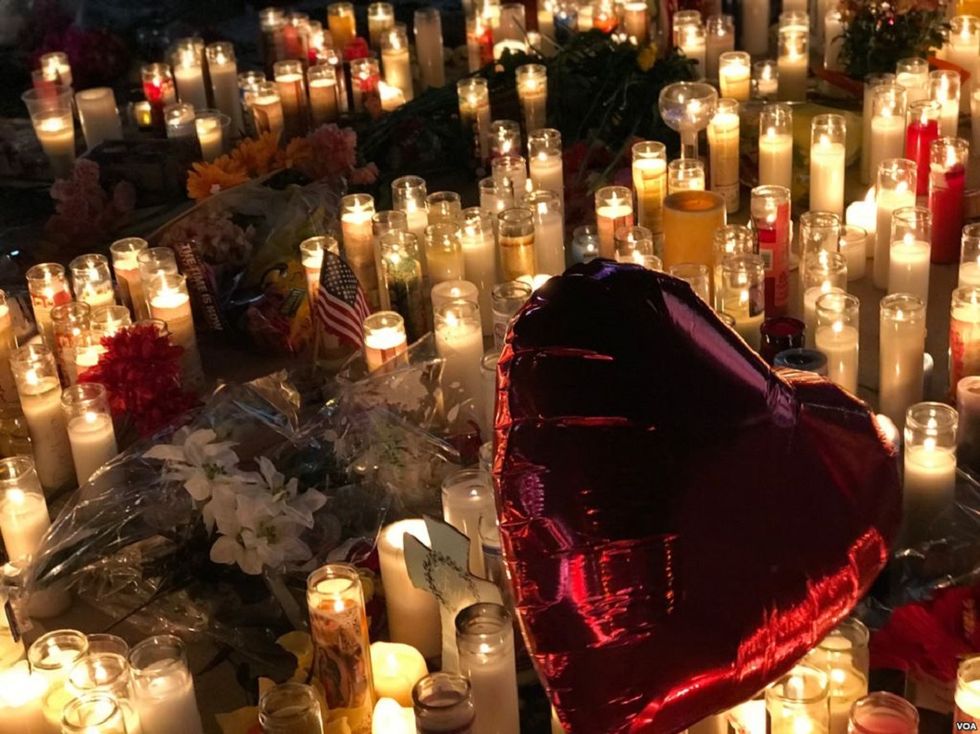One month ago, Steven Paddock savagely ended the lives of 58 innocent human beings before turning the gun on himself, bringing the death total to 59. In total, he shot more than 600 people within 10 minutes.
One might be tempted to think that an event as brutal and as heart-wrenching as this would be difficult to forget. That it would be ingrained in our nation's collective memory for several months, if not years or longer as a marker of our country's pain, a reminder of how harsh the world can be.
Instead, it has already been largely forgotten. Instead, we moved on in less time than it would have taken to remember even half of the fatal victims each for one day.
This reflects a lot of things in our society--a lack of empathy for those not in our immediate surroundings, a sense of isolation and distance from one another, and a hyper-individualistic mindset forged long ago as the predominant American ideology--but mostly it reflects the sheer normalcy of such tragedies.
As I wrote just after the shooting, what happened in Las Vegas was a lot of things but surprising wasn't one of them. That, above all else, is what allowed us to so easily move on and forget.
It's what allowed us to read the victims' names and brief backstories once over, maybe offer up some "thoughts and prayers" on social media, and then callously forget, rendering the victims as nameless and irrelevant to our lives as they would have forever been had they never fallen victim to a deranged man's storm of rapid-fire bullets.
But the victims' families can't forget. Nor can their friends, coworkers, neighbors, or acquaintances. Nor can those injured or even those spared from a bullet tearing through their skin but who, nevertheless, may remain scarred by their experience that night just the same. They, unlike us, have to remember.
They have to carry the burden of remembrance much like those whose lives were intimately touched by tragedies in Newtown, Aurora, San Bernadino, Orlando, Charleston, and so many other towns and cities whose names are now synonymous with the horrors a gun can inflict.
They have to carry this burden, all the while knowing and seeing the rest of us have moved on and forgotten without so much as a discussion of what could have prevented the tragedy from happening in the first place. So many were quick to offer up that we must wait to have such discussions and take time to mourn, but now that we've forgotten the victims and moved on from the tragedy, we still aren't having those discussions.
What hurts most of all about our nation so quickly forgetting and moving on is that it paves the way for future forgettings and instances of moving on. How are we ever to arrive at some sort of solution if we can't even collectively acknowledge a tragedy long enough to get there?

















